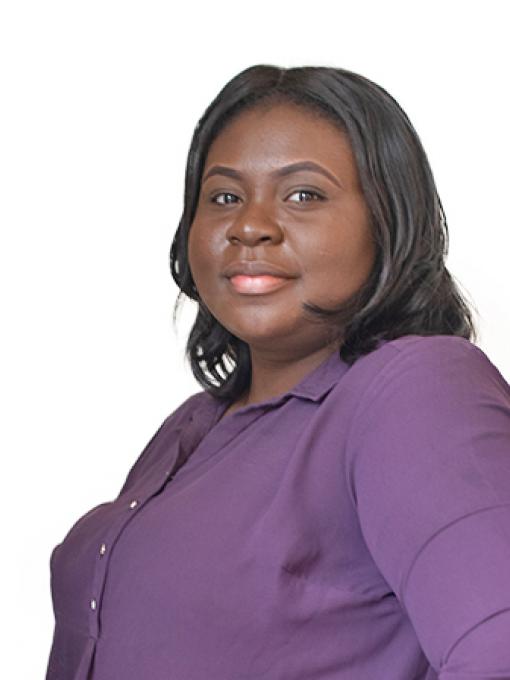Growing up, my friends and peers would always choose me as the voice to speak out against societal injustices. As I grew older, these early experiences led me to begin advocating against domestic and sexual violence against women and children.
This included fighting for the Violence Against Persons Prohibition Act in my home country, Nigeria. As a team we ran a social media campaign, organized a rally at the State house, and encouraged community members to lobby their representatives. We won the fight and the bill was enacted in 2015.
Over the past six months of my fellowship, I have grown tremendously, both as an individual and a professional.
It was this fight that drove me to study law at university and get a master’s degree in conflict management and peace studies. My academic experiences strengthened my voice as an advocate by providing the foundational knowledge in which to ground my arguments.
My fellowship with FCNL further strengthened my voice by providing me with practical foreign policy lobbying experience. Over the past six months of my fellowship, I have grown tremendously, both as an individual and a professional. I have learned so much about Quakers and Quakerism:
1. Pacifism does in no way mean passivism.
We work very hard to advocate for a peaceful and just world, without participating in or endorsing violent means. But we are anything but passive! In our appropriations work, we lobby for cuts to defense spending and military programs while seeking increased funds for diplomacy, peacebuilding, and development through accounts like the Complex Crises Funds (CCF) and Atrocities Prevention Fund (APF).
2. The FCNL way forces us to think outside the destructive militarist structure, to think creatively of alternative means for peaceful conflict resolution.
With the United States’ rich history of military interventions, it can be hard to make the case for peace and nonviolence. In FCNL’s recent report on ending the Afghanistan war responsibly, we challenge the militarist structure by urging for the increased use of Afghan-led bilateral and multilateral diplomacy efforts for sustainable peace in Afghanistan. The brief also lays out how the United States government can use diplomacy and international development to better support the Afghan people and encourages the withdrawal of U.S troops from the country.
3. There is that of God in all of us.
When you see that of God in all, it is hard to hate another person. This idea gives zero room for hate to grow. This worldview is part of why FCNL has such strong relationships on both sides of the aisle. With Advocacy Teams all over the country, we lobby congressional offices, both Republican and Democrat, with a goal to understand and build relationships, not to judge or cast aspersions. This in turn creates the space for mutual understanding and beneficial collaboration.
4. The wonderful SPICES; Simplicity, Peace, Integrity, Community, Equality and Stewardship, which forms the foundational tenet of the Quaker faith.
As a very curious person and one that has explored different faiths, I have never found one that is both so simple and has so very greatly strengthened my walk with God. The SPICES have made it possible for me to strip away the clutter surrounding my faith, so I am able to simply focus on my core beliefs and what it requires of me.
5. And still we march.
One of my very first lessons at FCNL was, while we might not win all our battles, and while we might be the solitary voice in the dark, still we march. For instance, despite months of hard work to pass S.J. Res 68, which would prevent war with Iran, the president vetoed the bill. While this could have been disappointing and sent us back to the drawing table, the passage of the bill in both chambers showed both an overwhelming bipartisan disapproval for the president’s warmongering and publicized the need for Congress to once again take firmly in hand their powers of the purse. This made the whole effort a win in our books! Despite the initial setback, we march forward by tirelessly lobbying for repeal of the 2001 and 2002 Authorizations for Use of Military Force (AUMF) in Congress.
These are the key pieces of life-changing wisdom working with FCNL has provided me. In our mission of speaking truth to power, we must remain steadfast in our search for equitable processes. As my fellowship with FCNL draws to a close, these are the principles that will guide my work as I move forward in my mission of creating just and equitable multilateral governing systems.
